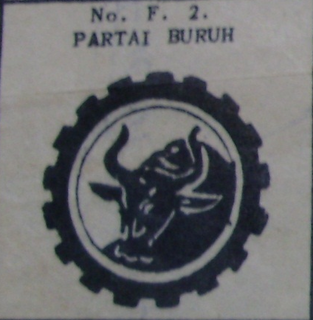
The Australian Labor Party is a major centre-left political party in Australia. The party has been in opposition at the federal level since the 2013 election. Bill Shorten has been the party's federal parliamentary leader since 13 October 2013. The party is a federal party with branches in each state and territory. Labor is in government in the states of Victoria, Queensland, Western Australia, and in both the Australian Capital Territory and Northern Territory. The party competes against the Liberal/National Coalition for political office at the federal and state levels. It is the oldest political party in Australia.

The Independent Labour Party (ILP) was a British political party of the left, established in 1893, when the Liberals appeared reluctant to endorse working-class candidates, representing the interests of the majority. A sitting independent MP and prominent union organiser, Keir Hardie, became its first chairman.
The Labour Party is a social-democratic political party in the Republic of Ireland. Founded in 1912 in Clonmel, County Tipperary, by James Larkin, James Connolly, and William X. O'Brien as the political wing of the Irish Trades Union Congress, it describes itself as a "democratic socialist party" in its constitution. Labour continues to be the political arm of the Irish trade union and labour movement and seeks to represent workers interests in the Dáil and on a local level.
The Barbados Labour Party (BLP) is the main party of government of Barbados which was established in 1938. Led by Prime Minister Mia Amor Mottley, the BLP holds 29 of the 30 seats in the House of Assembly of Barbados after MP for St. Michael West, Joseph Artherly decided to become an Independent MP and became the Leader of the Opposition. It was elected to government on 25 May 2018 after 10 years in opposition, with Mottley becoming the country's first female Prime Minister.

Tribune is a democratic socialist magazine, founded in 1937 and published in London. It is independent but has usually supported the Labour Party from the left. From 2009 to 2018 it faced serious financial difficulties until it was purchased by Jacobin Publisher Bhaskar Sunkara in early 2018, shifting to a quarterly publication model.

Trade Unions in India are registered and file annual returns under the Trade Union Act (1926). Statistics on Trade Unions are collected annually by the Labour Bureau of the Ministry of Labour, Government of India. As per the latest data, released for 2012, there were 16,154 trade unions which had a combined membership of 9.18 million. The Trade Union movement in India is largely divided along political lines and follows a pre-Independence pattern of overlapping interactions between political parties and unions. The net result of this type of system is debated as it has both advantages and disadvantages. Bharatiya Mazdoor Sangh is the Largest Trade union of India.
The Socialist Unity Party was one of the better-known communist parties in New Zealand. It had a certain amount of influence in the trade union movement, but never won seats in Parliament.

The Hind Mazdoor Sabha is a national trade union centre in India.
The Central Labour College was a British higher education institution supported by trade unions. It functioned from 1909 to 1929. It was established on the basis of independent working class education.
The Labour Party of Indonesia was a political party in Indonesia.

The Labour Party was a political party in Indonesia. It was formed on December 25, 1949 by a group of former Labour Party of Indonesia (PBI) members, who had disagreed with the merger of PBI into the Communist Party of Indonesia.
Bulgarian Social Democratic Workers Party was a reformist socialist political party in Bulgaria. The party emerged from a division at the Tenth Party Congress of the Bulgarian Social Democratic Workers Party held in 1903 (the other faction forming the Bulgarian Social Democratic Workers' Party. The 'Broad Socialist' faction had appeared inside the pre-split party around 1900, when Yanko Sakazov had started the magazine Obshto delo. The Broad Socialists, analogous to the Mensheviks in the Russian Social Democratic Labour Party, argued in favour a broad social base of the party and broad class alliances.
Sentral Organisasi Buruh Republik Indonesia was an Indonesian trade union centre. SOBRI was founded in Bandung in 1951. SOBRI functioned as the trade union wing of the Murba Party.
Sarbupri, short for Sarekat Buruh Perkebunan Republik Indonesia, was a trade union of plantation estate workers in Indonesia. As of the late 1950s, it was the largest trade union in the country. Sarbupri was affiliated to the trade union centre SOBSI, which was linked to the Communist Party of Indonesia.
Persatuan Buruh Kereta Api was a trade union of railway workers in Indonesia. It was affiliated with the Kongres Buruh Seluruh Indonesia (KBSI) trade union centre. PBKA was one of the key unions of KBSI. As of March 1958, PBKA claimed a membership of 32,000. PBKA was led by Dr. Kusna.
The Central All-Indonesian Workers Organization was the largest trade union federation in Indonesia. It was closely linked to the Communist Party of Indonesia (PKI), but was suppressed along with the PKI after the 1965 coup that installed the New Order regime.

The Socialist Party is a Trotskyist political party in England and Wales which adopted its current name in 1997 after being formerly known as Militant, an entryist group in the Labour Party from 1964 until it abandoned that tactic in 1991. The party stands under the electoral banner of the Trade Unionist and Socialist Coalition (TUSC).








